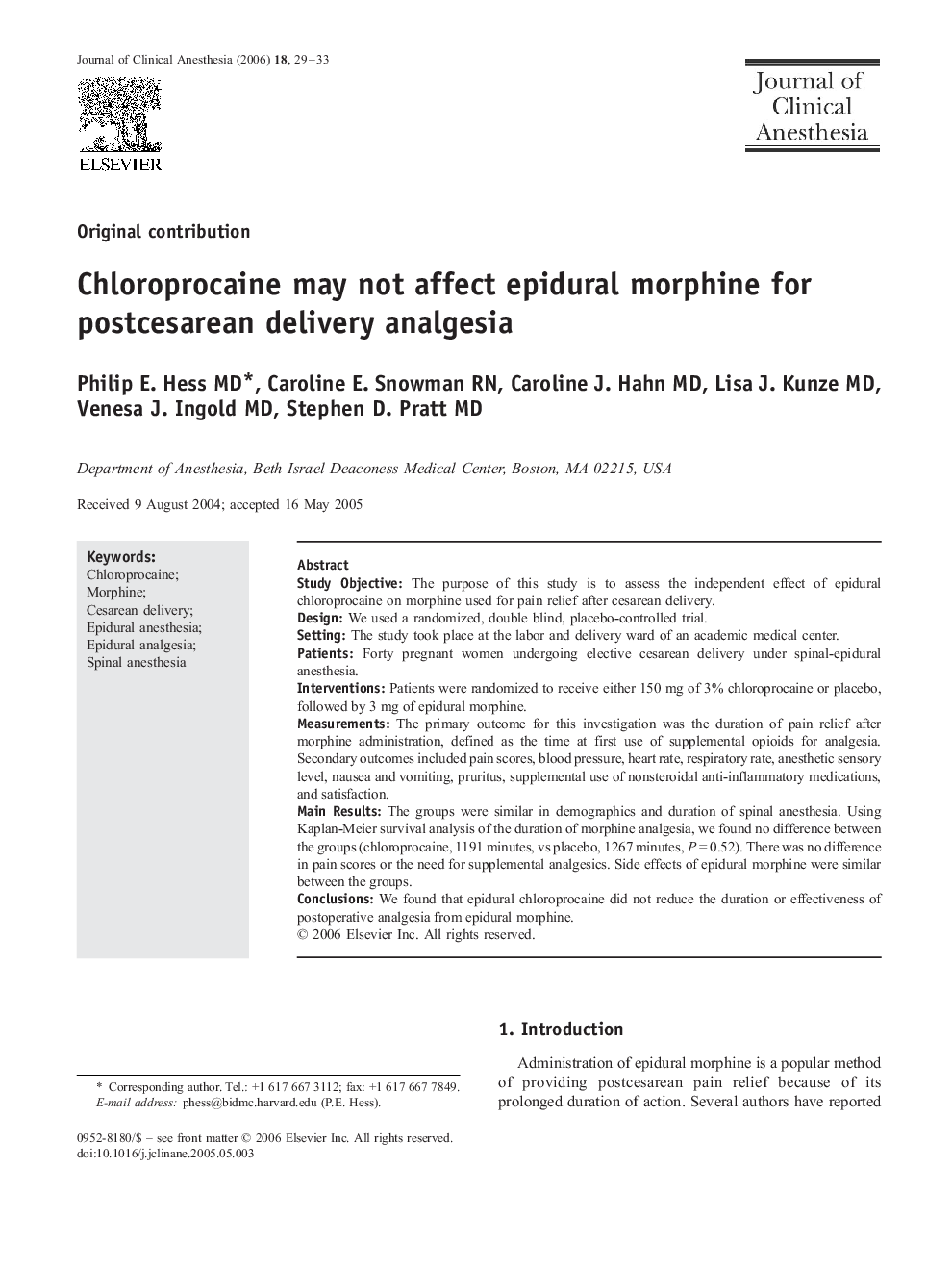| Article ID | Journal | Published Year | Pages | File Type |
|---|---|---|---|---|
| 2764021 | Journal of Clinical Anesthesia | 2006 | 5 Pages |
Study ObjectiveThe purpose of this study is to assess the independent effect of epidural chloroprocaine on morphine used for pain relief after cesarean delivery.DesignWe used a randomized, double blind, placebo-controlled trial.SettingThe study took place at the labor and delivery ward of an academic medical center.PatientsForty pregnant women undergoing elective cesarean delivery under spinal-epidural anesthesia.InterventionsPatients were randomized to receive either 150 mg of 3% chloroprocaine or placebo, followed by 3 mg of epidural morphine.MeasurementsThe primary outcome for this investigation was the duration of pain relief after morphine administration, defined as the time at first use of supplemental opioids for analgesia. Secondary outcomes included pain scores, blood pressure, heart rate, respiratory rate, anesthetic sensory level, nausea and vomiting, pruritus, supplemental use of nonsteroidal anti-inflammatory medications, and satisfaction.Main ResultsThe groups were similar in demographics and duration of spinal anesthesia. Using Kaplan-Meier survival analysis of the duration of morphine analgesia, we found no difference between the groups (chloroprocaine, 1191 minutes, vs placebo, 1267 minutes, P = 0.52). There was no difference in pain scores or the need for supplemental analgesics. Side effects of epidural morphine were similar between the groups.ConclusionsWe found that epidural chloroprocaine did not reduce the duration or effectiveness of postoperative analgesia from epidural morphine.
